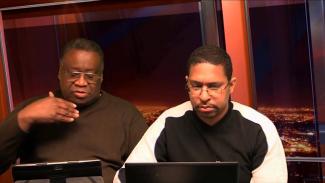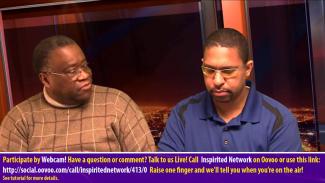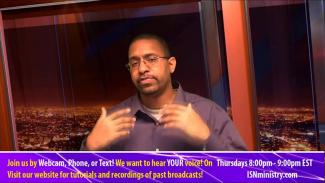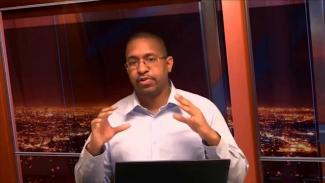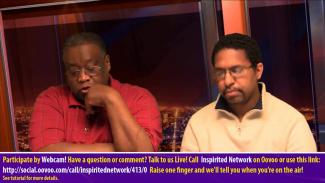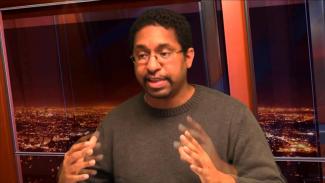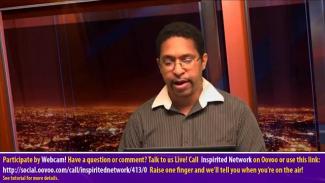What does the book of Proverbs say about living by faith? How does Solomon further elaborate on his themes of oppression and treatment of the poor? While riches are not a sin, what does the Bible say about how people should become rich? This week we explore Proverbs 28 - 29. Solomon discusses themes of true leadership and corruption, warning of the perils of ruling by unjust means. Why does Solomon suggest its better to have little and maintain integrity compared to having much but resorting to unrighteousness to get there?
2015 Broadcasts
Choose from all 2015 broadcasts or select a topic from the menu.This week, in our exploration of Proverbs, we focus on Proverbs 26-28. Solomon has a lot to say about what lies beneath the surface. Often, people where a mask. We don't always see who a person truly is until they have a chance to show their true colors. Likewise, many only superficially understand things while not looking and digging deeper to obtain true wisdom. The fool wears the mask of wisdom, the lazy wear the mask of fear, and enemies wear the mask of friends. How can Solomon's wisdom help us to avoid being hurt by why lies beneath the masks we encounter?
What is truth and how does God expect us to relate to truth? Are only Biblical writers given wisdom from God? Does God give wisdom to secular rulers or people? How should the wise relate to the poor? Does God expect the poor to receive partial treatment? Is it ok to be partial toward the rich? How should we relate to truth and what does God expect us to do once we have access to truth? This week's study focuses on Proverbs 23-24.
What words of Wisdom does Proverbs contain for every day life? What implications are there for how we should treat others? While the Bible teaches that we should give to those in need, what does it say about those who don't have because they refuse to work? What practical advise does Proverbs have for parents and how they discipline their children? This week we focus on Proverbs 20 to 22.
What does Proverbs teach about relationships? How should people deal with conflicts with one another? How do words play a role in conflicts? If friends are to love one another, what does that love look like and how should it be demonstrated? What value should be placed on money in our personal relationships? This week, in Proverbs 17-19, Solomon explores conflicts and gives sound wisdom that can greatly impact how we get along with one another.
As human beings we often look only at the surface value of things and fail to see what is beyond. Much like how the crew of a ship sees the tip of an iceberg, people may think the wicked prosper but don't know the full story. How does Solomon again compare the foolish and the wise? In what ways do people today display these characteristics? When you get past the surface value, what are the rewards of the fool and the wise? What do each contribute to society? What other things does Solomon teach us in Proverbs 14 - 16?
What is the difference between when we obtain material wealth and obtain it with God's blessing? How does Proverbs contrast the experience of the righteous with that of the wicked? Can a person be intelligent or smart, but still be foolish and unwise? What are the rewards of doing the right thing? What should be our motivation to do right? How does God feel about hard work and laziness? How do our choices to do right or wrong impact people around us? In this week's lesson we explore how Proverbs illustrates the way in which we reap what we sow.
This week we focus on wisdom and its link to Creation. How is wisdom linked to creation? In what ways does wisdom's personification in Proverbs 8 connect with the characteristics of the Godhead? Also, in this chapter, Solomon again compares wisdom and foolishness highlighting their different approach at drawing people to their side. What makes wisdom the better option? What value should we place on wisdom? How do fools respond to wisdom?
This week we discuss Solomon's themes of law as it relates to light and life. How can God's law function as a light in our lives? What does it mean to have the law written on the heart? Does God really want us to tie commandments to our heads, hearts, necks, and hands? How should we interpret these passages of scripture? What does Solomon have to say about resisting temptation? In this study we explore Solomon's advice: including why one must resist the adulterous woman. What important lessons does Solomon focus on here and why are they so crucial?
In the book of Proverbs, Solomon often refers to the ears and the feet. What do these references mean? Why are the ears and feet so important? This week we explore Proverbs 4 - 6 looking at some of the wise counsels of Solomon on subjects such as obtaining wisdom, work, sexuality and family, friendship, avoiding the calamity of evil. Is Solomon's wisdom still valid today? In our post modern world, how might we apply this wisdom?
This week we begin studying the book of Proverbs written by Solomon. What is the meaning of these wise sayings? Why did Solomon write them? Where did Solomon get his wisdom from? Is wisdom something to work for, or is it something given and received? What is the greatest source of wisdom and how can people obtain it today? Is there a difference between worldly wisdom and heavenly wisdom? As we begin our study on the book of Proverbs we will look at Solomon's call to wisdom and tackle many of these questions.



